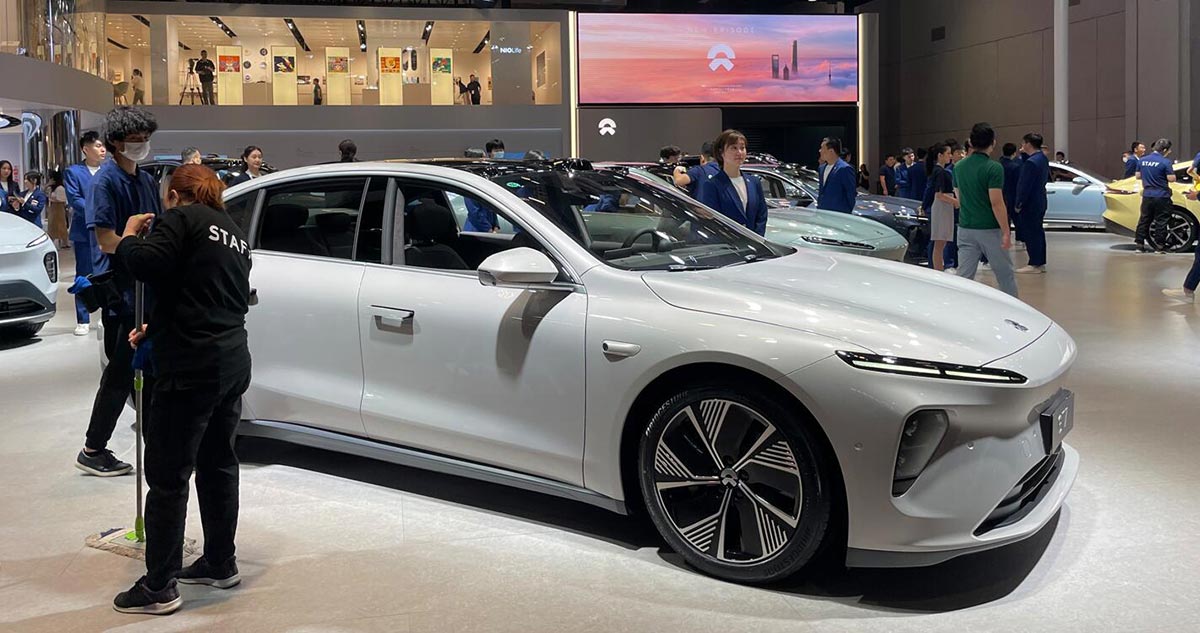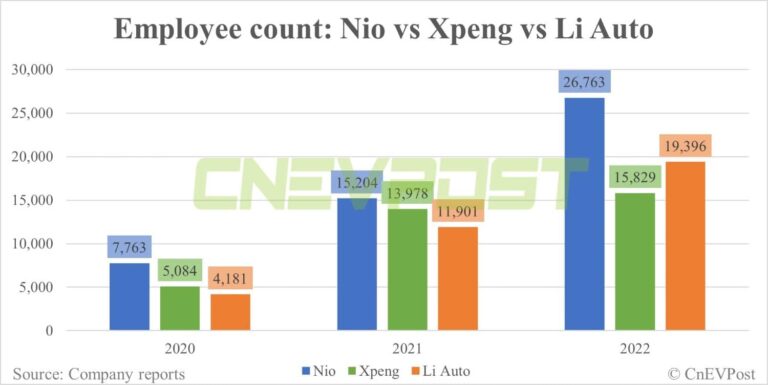Nio said it will improve resource efficiency and defer or cut investments in projects that don't contribute to the company's financial performance in three years.
(Image credit: CnEVPost)
Nio (NYSE: NIO) has released an organizational and business optimization plan for all employees, with an unprecedented emphasis on execution efficiency in response to increasing competition in China's electric vehicle (EV) market.
"The coming two years will witness the most intense competition during the transformation of the automotive industry in an environment full of uncertainty," William Li, Nio's founder, chairman and CEO, said in an internal letter obtained by CnEVPost.
Nio launched five new products this year, capturing more than 40 percent of the battery electric vehicle segment with a transaction price of over RMB 300,000, Li said.
"However, we still have a gap between our overall market performance and expectations," Li said.
"To qualify for the final round of competition, we must further improve execution efficiency and ensure adequate resources for critical business areas," he said.
Over the past two months, Nio has organized more than 30 meetings to analyze and discuss the two-year operating plans, so as to identify the objectives, key success factors and priorities, action plans, necessary resources in every business area, as well as opportunities for organizational optimization, cost reduction and efficiency improvement, according to Li.
Over the past two weeks, Nio has identified business priorities and developed a detailed plan for organizational and business optimization based on the following principles:
Ensure long-term investment in core technologies, keep Nio's technologies and products in the leading position.
Ensure Nio has the sales and service capabilities to navigate the intense competition.
Ensure the nine core products of the three brands are released as scheduled.
Improve organizational efficiency, consolidate duplicate departments and roles, reform inefficient processes and division of roles and responsibilities, eliminate inefficient positions.
Improve resource efficiency, defer or cut project investment that won't contribute to the company's financial performance in three years.
Following these principles, Nio plans to reduce positions by about 10 percent, with the adjustments to be completed in November, Li said.
As of December 31, 2022, Nio had 26,763 full-time employees, according to its 2022 annual report.
That means Nio will lay off at least 2,600 employees in this round of business optimization, not taking into account this year's additions.
"I'm sorry to colleagues who may be impacted by the adjustments. This is a tough but necessary decision against the fierce competition," Li said.
"Our journey is a marathon on a muddy track. Please stay focused on efficient execution and improvement of system capabilities," he added.
Nio's move appears to be long overdue, with its broad range of new businesses, and slow-growing deliveries, currently depleting its cash reserves at a rapid pace.
Nio had suffered operational problems in 2022 for a variety of reasons, and unexpectedly cut its delivery guidance on December 27 last year.
Deutsche Bank analyst Edison Yu's team had asked in a January 3 research note, will Nio's operational problems ever end?
With Nio valued well below Li Auto at the end of 2022, this reflected investor concerns about the ability of Nio's management to execute, especially if it has ambitions to launch two other car brands and expand meaningfully into Europe, the note wrote at the time.
As it switched models in the first half of the year, Nio's deliveries continued to perform weakly, falling to 6,155 units in May.
Since June, Nio's monthly deliveries have moved back above 10,000 units and reached a record 20,462 units in July.
Over the past three months, the company's deliveries have fallen back down, only to see a small rebound in October.

